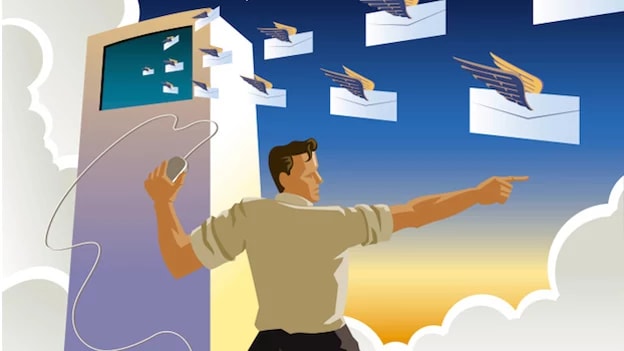Don't let work emails overwhelm you

The reliance on electronic communication has resulted in an increasing number of cases of fatigue among professionals. Sometimes, this fatigue gets so chronic that we start to lose track of our communications as well.
Effective communication is the backbone of any business. As an organization grows in size, it can easily become difficult to keep track of all the emails being sent from one department to the other. At such a time, it becomes imperative for managers to instil a structure in the email communication processes. Where there is people, there will be chit-chat. And this chit-chat must stay in a separate zone so that all team members receive the information they need to perform their individual tasks without overwhelming the rest of the team, and the progress of the organization is not hindered in any way.
Communication etiquette
Every organization, no matter how big or small, needs to set up a communication etiquette from the beginning. This etiquette must define the acceptable time limits for different channels of communications among employees and also with clients or vendors or any other external entity. An email must be responded to within 24 hours, a text must be responded to at the earliest, and a call must be returned immediately. This will help set the tone of expectations for employees at every level within the organization and inculcate the habit of responding to email communications at the earliest. A study shows that such habits in employees can result in a huge turnaround for the business as sales teams learn to respond quickly to leads generated from online channels.
Account for individual styles of communication
Every individual has his or her own style of communicating based on their personality types. These personality types have been well documented by psychologists. For leaders, it’s always a good idea to map those personality types of their employees and encourage them to communicate in their individual styles as much as possible in order to make interactions more fruitful and engaging.
Learn to delegate
As a leader, you might be indispensable for your organization. However, being indispensable has its downsides as well. For starters, you won’t have enough time to focus on delivering the best results that you can, and that often results in mistakes showing up at all the wrong places. Being deeply involved in every process is good, but the ability to delegate tasks to the right people is the mark of a true leader.
Leaders and startup founders are often mired by the need to get their “hands dirty”, and as a result, they fail to train others in taking up some of their responsibilities. It’s always a good idea to train people such that the business keeps running and growing irrespective of your presence. Of course, there will be instances where senior leadership is required to take over, but such situations must be rarefied as much as possible.
In conclusion
Once you have these basics covered, start working on other factors that impede your email communications. Learn to say no diplomatically, but clearly enough when required. Understand what triggers delays in your email response. Take regular breaks from work and technology, and relax yourself a little. And most importantly, stop multitasking and learn to prioritize. Make a 5-minute task list that includes emails that need an immediate response, and mark the others as unread or move them to a different folder for you to respond to later. When you are able to do that, you’ll see a marked difference in your response time to work emails and you will never feel overwhelmed by your inbox anymore.

















